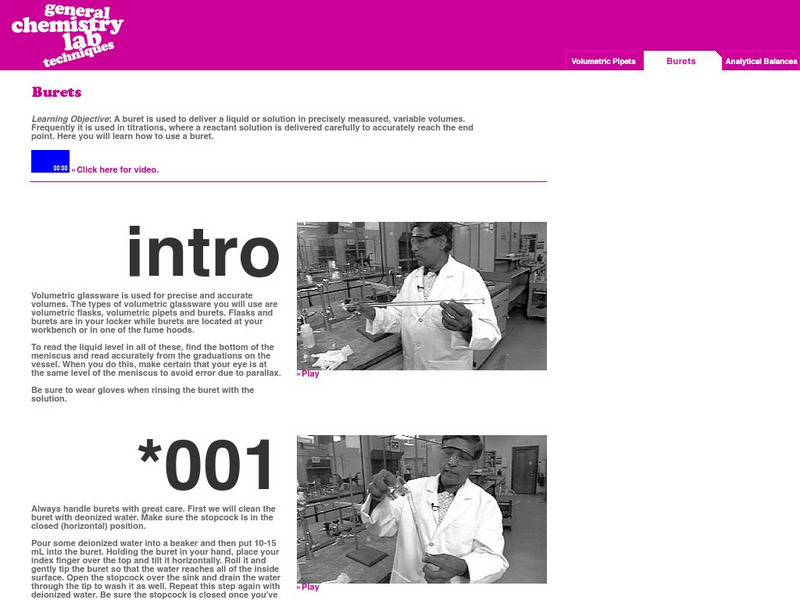Teach Engineering
Exploring Capillary Action
Explore capillary action from different perspectives. In the fourth installment of a nine-part series, scholars perform several experiments to observe capillary action. They look at the meniscus of water in a glass, observe capillary...
Curated OER
Volume Lab
How can we find volume if it a shape isn't easy to measure? Investigate methods for determining this as the volume of regular and irregular objects is explored in several stations. Learners discover that when the standard formula for...
Curated OER
Measurement-A Common Language: Volume
In this volume worksheet, students take notes on the various ways to measure volume depending on if the substance is liquid, an irregular shaped solid, or a regular shaped solid.
Curated OER
Measuring With Graduated Cylinders
Students explore measuring with a graduated cylinder. In this measurement lesson, students observe liquids in a beaker. Students predict the volume of liquid in the beaker and then transfer the liquid to a graduated cylinder. Students...
Curated OER
The Scientific Method
In this scientific method worksheet, students read about the steps of the scientific method, ways to measure mass and volume and how to read a meniscus. Students use the scientific method to determine if an object is a liquid or a solid...
Curated OER
Volume of Irregular Objects
Fifth graders experiment using a Meniscus. In this volume lesson, 5th graders identify the volume of irregular objects using the process of water displacement. Students record data and draw conclusions.
Curated OER
Metric Vocabulary Word Search
In this mathematics terminology worksheet, students identify and locate various terms related to the metric system and measurement. There are ten words located in the puzzle.
Yale University
Yale University: General Chemistry Lab Techniques: Volumetric Pipets
A four-step tutorial shows students how to use a pipet in general chemistry lab to make "precise and accurate" volume measurements. View the full-length lesson via streaming video [9:46] or in segments.
Yale University
Yale University: General Chemistry Lab Techniques: Burets
Tutorial shows proper procedure for handling a buret and using this piece of laboratory equipment to measure liquid volume. View accompanying video full-length [18:00] or in segments.
Sophia Learning
Sophia: Measuring Volume
A brief overview of the definition of volume, and a description on how to measure the volumes of liquids.
Science Struck
Science Struck: An in Depth Comparison of Cohesion vs. Adhesion
Explains what cohesion and adhesion are; what their effects are in a liquid; what surface tension, a meniscus, and capillary action are; and gives examples of where one can observe cohesion and adhesion.
My Science Site
Science Sites: Volume of Irregular Objects [Pdf]
A cooperative learning activity for any science teacher to use to help their students gain an understanding of how to use a graduated cylinder, define a Meniscus, as well as learning to find the volume of irregular objects using water...
Sophia Learning
Sophia: Reporting Volume Measurements: Lesson 2
This lesson will explain how to determine the precision of a measurement using laboratory glassware and report it accurately. It is 2 of 2 in the series titled "Reporting Volume Measurements."
Ducksters
Ducksters: Physics for Kids: Lenses and Light
Kids learn about lenses and light in the science of physics including concave, convex, converging, diverging, focal point, meniscus, and Plano lenses.












